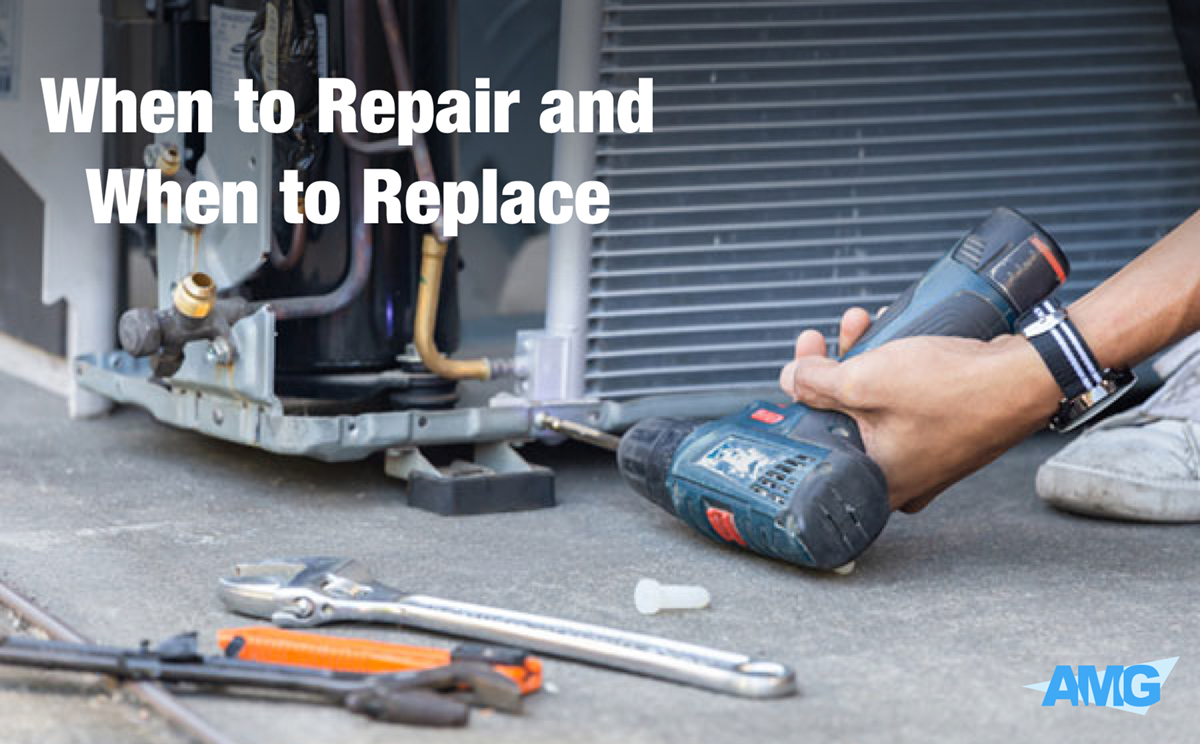When facing HVAC system issues, your initial inclination might be to opt for repairs. However, there comes a juncture where repair efforts cease to be a wise investment of your time and money. It becomes more prudent to consider acquiring a new system altogether. But how do you discern when that pivotal moment has arrived? Here are several critical factors to weigh when determining whether to proceed with repairs or embark on a replacement journey:
System Age: Typically, an air conditioning unit has a lifespan of 12 to 15 years, while a furnace can last 15 to 20 years. If your A/C surpasses the decade mark or your furnace exceeds 15 years and necessitates substantial repairs, it’s often financially advantageous to forego repairs and initiate a replacement. This proactive approach saves you money and circumvents an inevitable replacement in the near future.
Repair Costs: When evaluating the cost-effectiveness of repairs, a straightforward rule of thumb is, “Do the repair expenses exceed half the cost of purchasing a new system?” If the answer is affirmative, opting for a replacement is the more economical choice. A slightly more intricate calculation involves multiplying the repair costs by the unit’s age. If the product exceeds a total of $5,000, a new system is advisable. Remember, HVAC systems depreciate over time, making it financially unwise to continually invest in a diminishing asset.
Frequency of Breakdowns: Consider how frequently you need to enlist the services of an HVAC technician for repairs. If it exceeds once per season, it indicates that your system may not be worth the ongoing maintenance costs. Investing in a new system now can result in long-term savings by reducing the need for frequent repairs.
Energy Efficiency: Evaluate your system’s energy consumption over an average season. Is it consuming more energy this year compared to previous years? HVAC systems inevitably lose efficiency with age, while newer, more efficient models continually enter the market. Particularly if your system is several years old, upgrading to a new, energy-efficient model can yield substantial long-term savings. Not only does it benefit your wallet, but it also contributes positively to the environment by reducing carbon emissions.
Resisting the initial expense of a new system in favor of seemingly cheaper repairs can be tempting. However, it’s crucial to view this decision as an investment. Acquiring a new system often translates into long-term savings, reducing future repair costs and energy expenses. Additionally, advancements in technology can enhance comfort and convenience. Is it truly worth pouring more money into a troublesome system?
If you’re in search of a new HVAC system, our experts are available to guide you in selecting the ideal solution for your home. Contact us today to explore your options!”


